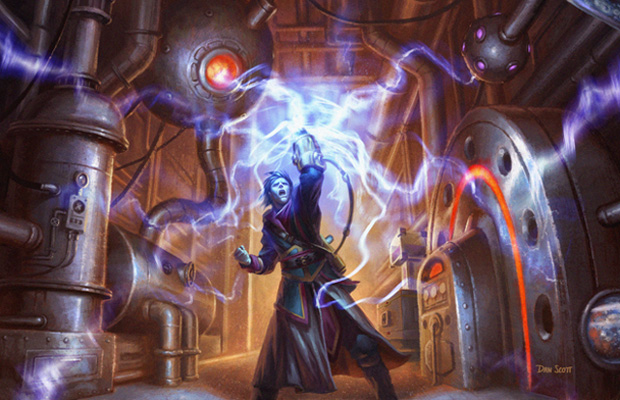
" the Eberron setting uses Utility Magic on a society-wide scale. Use of Magitek is widespread and "working class" spellcasters such as magewrights earn their livings by providing everyday spellcasting services. There is even a spell called Magecraft, whose sole function is to improve the quality of products being created by ordinary craftsmen. The dragonmarked houses are basically corporations whose role in society is to provide magic-based services up to and including the mass-production of consumer goods using magical methods. Thus the market prices for many goods (such as swords) is fixed because House Cannith, with controls magical manufacturing, has imposed standardized pricing. "
- http://tvtropes.org/pmwiki/pmwiki.php/Main/MagicTool
But the reverse is also true. Without Dungeons & Dragons'® Necromancy, there are other means by which you may 'meddle with bones.' Cybernetics utilising the bones as a scaffold and morphology from which to operate on. Regrow and grafting tissue and halting decay with unorthodox biomedical methods.
The true source of such power is:
A keen mind that discerns the nature of things. This is your greatest assert first and foremost. Good health and ample opportunity notwithstanding.
Your shall work to discover some means to subvert existing or remnants of autonomous systems can extend well beyond your usual means of meat puppetry.
Finding kinship with those that share your overpowering desire to master the forbidden and secret arts shunned by the rest of world An insatiable appetite for the forbidden, fascinated by the obscure. The itch that needs to be scratched to unravel all the dark, hidden mysteries of the cosmos.
Welcome to your first year of college.





